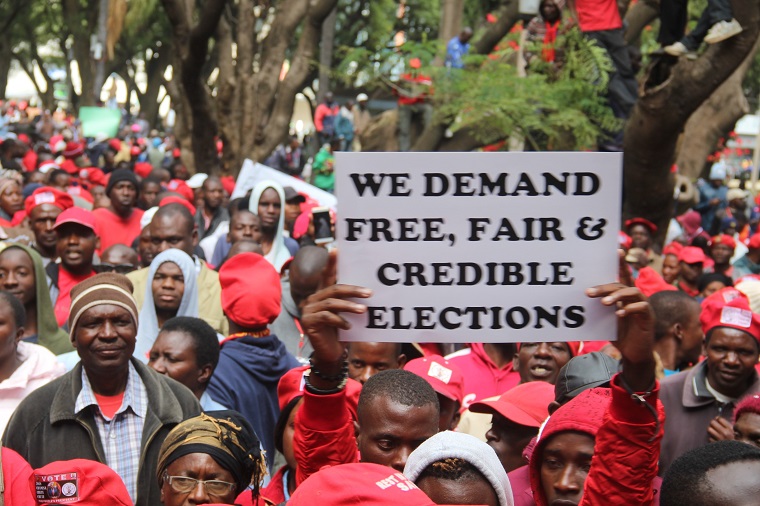Election Act Provisos
Although the court’s powers seem very wide, the Electoral Act puts several hurdles in the way of an applicant who asks the court to exercise them:
- The court will not set aside an election on the ground of mistake or non-compliance with the Act unless the court considers the election was not conducted in accordance with the principles laid down in the Act and the mistake or non-compliance affected the result of the election [section 177 of the Act]. This will be not easy for any challenger to establish. For example, the MDC Alliance may be able to show that ZEC did not conduct the election as transparently as it should have done, and may be able to prove further that ZANU-PF misused State property for electoral purposes, dragooned schoolchildren into attending rallies and suborned traditional leaders; but it would then have to prove that all these irregularities actually affected the result.
- And on the question of transparency, the Electoral Act itself is not clear about the grounds on which a presidential election can be successfully challenged. For example, section 155 of the Act states that an election is void if electoral malpractices were committed with the knowledge, consent or approval of the winning candidate or his or her agents – but the section may not apply to presidential elections.
Overriding Constitutional Provisions
The Constitution obliges the State – which includes the Executive, the Legislature and the Judiciary – to take all appropriate measures to ensure that effect is given to the principles of the electoral system set out in section 157(1) of the Constitution. Those principles include that elections must be peaceful, free and fair, and free from violence and other electoral malpractices. The Constitution takes precedence over any Act. Section 3 of the Electoral Act reiterates that elections are subject to the Constitution and section 3 (a) says “the authority to govern derives from the will of the people demonstrated through elections conducted efficiently, freely, fairly, transparently and properly”. The Constitutional Court will have to read section 177 of the Electoral Act in the light of the principles laid down in the Constitution. Hence if the Court finds that there were egregious and blatant departures from constitutional principles then it will have to set aside the election whether or not the departures can be shown to have affected the result.
When will a President-elect be Sworn in?
If an electoral challenge is lodged:
If a petition or application challenging the validity of the presidential election is lodged, the President-elect’s swearing-in takes place forty-eight hours after the Constitutional Court has announced its decision on the challenge.
If no electoral challenge is lodged:
Under section 94 of the Constitution a President-elect must take the oath of office on the ninth day after he or she was declared elected. This means that the President-elect will take the oath of office as President on Sunday 12th August.
(434 VIEWS)


